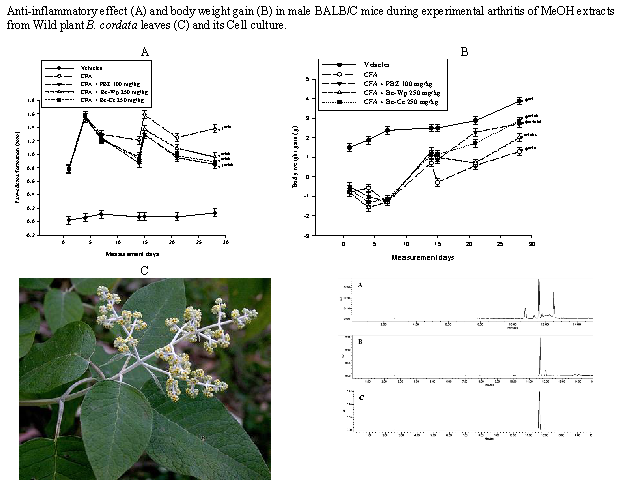 |
|
Buddleja cordata is a species used by Mexican folk medicine for treating illnesses related to inflammation such as skin wounds and arthritis. It bio-synthesize metabolite such as verbascoside that contribute to its ethno-therapeutic properties as anti-inflammatory remedy. HPLC analysis showed that the methanolic extract from cell suspension cultures (Bc-Cc) and wild plant leaves (Bc-Wp) contained verbascoside, but concentration was higher in Bc-Cc (87.48 mg/g) than in wild plant (47.34 mg/g). In the acute toxicity model, none of the extracts generated any lethality or adverse effects. In acute inflammation model induced with TPA, Bc-Cc extract showed a greater edema inhibition at 2 mg/ear (61.72%), as well for carrageenan model at 200 mg/kg (48.87%). Bc-Wp showed lesser anti-inflammatory effect in both acute inflammation models than Bc-Cc. For Adjuvant-induced arthritis both extracts at 250 mg/kg generated a moderate inhibition over edema (≈33%) at day 28, and they were statistically no different to phenilbutazone. The culture in suspension of B. cordata obtained by biotechnological process contains greater amount of verbascosido and showed better anti-inflammatory activity; thus, representing a source for obtaining this type of secondary metabolite of pharmacological interest.
Keywords: cell suspension culture, Buddleja cordata, verbascoside, anti-inflammatory activity, median lethal dose.
|
|
 |

